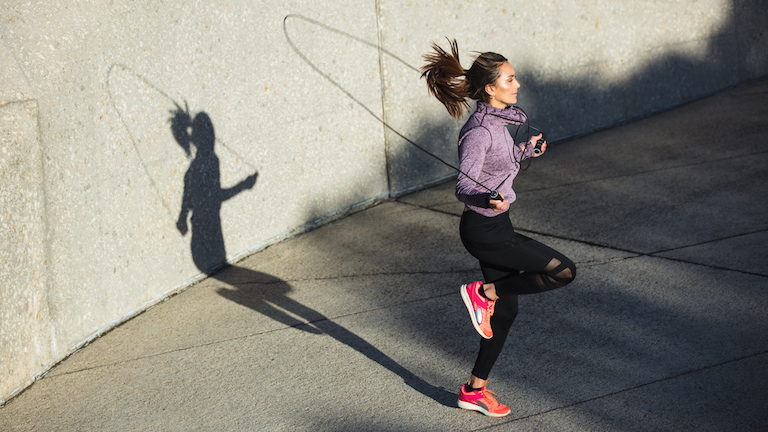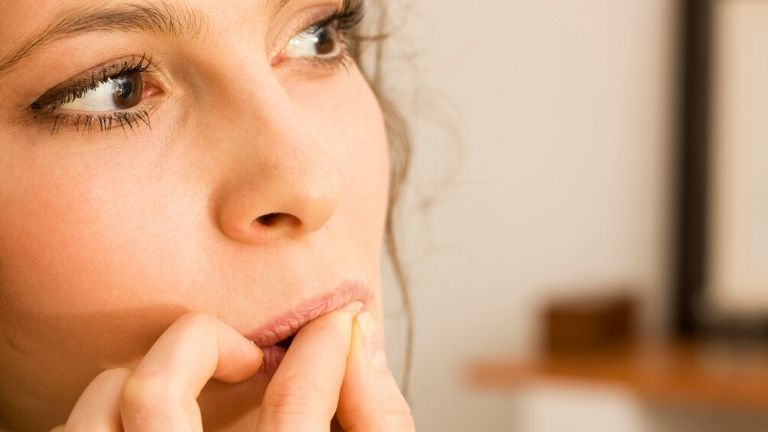Planning on adopting some healthy habits for the New Year? Wondering which resolutions you’ll actually be able to stick to? Leading behaviour change specialist Dr Heather McKee will be sharing ten days worth of healthy habit tips – be sure to check back in daily
You’ve survived the festive excesses; eating your way through endless meals, cheese boards, sweet treats and Xmas goodies, all washed down with a glass or two of a mandatory tipple.
But now the new year is here and despite lockdown 3.0 and the temptation to throw in the towel on your resolutions early on, people are still looking to create healthy habits that will actually last longer than just a few weeks…
Have you already fallen off the wagon? Well not to worry, because for the next ten days, Dr Heather McKee will be sharing daily habit tips to help you create and stick to your new year resolutions.
Be sure to check back in daily for the couple of weeks!
Healthy Habits Tip #10 Find the fun
Why do we drag ourselves through a punishing HIIT routine or pound the treadmill when we absolute hate it? Why do we subject ourselves to a diet of steamed chicken and broccoli for weeks on end?
Often because we believe it’s good for us, and it is, but it’s not good for us if we can’t stick with it. So, my final and crucial tip is to ask yourself ‘What healthy habits do I enjoy?’
In order to stick to our healthy habits, we have to enjoy them. You can start right now by making a list of health habits you get a boost from.
In order to stick to our healthy habits, we have to enjoy them
Maybe it’s the calm centred feeling you get after a breath exercise, or the vitality you feel after a brisk walk outside or how you enjoy getting into bed 10 minutes early.
Equally can you layer more enjoyment onto those healthy habits that are starting to feel a bit mundane? This can incentivise us to make them happen.
Can you only listen to your favourite podcast whilst out on a run? Or only watch the latest Netflix series whilst doing your healthy meal prepping? Or only light that candle you love when meditating?
Find joy and the skills to build lasting healthy habits in the Bite Sized Habits course
Healthy Habits Tip #9 Piggyback your new habits onto existing ones
The New Year can make us feel under pressure to create an entirely new routine, but this isn’t always the best way to set us up for maintaining our new changes.
One technique researchers support is that of piggybacking. Piggybacking involves tying a new behaviour to an existing habit.
Your existing habit is the context or cue for you to engage in your new habit. What is something you do every day without fail? Without even thinking about it. E.g., make a morning coffee, toothbrushing, having a shower.
Piggybacking involves tying a new behaviour to an existing habit
What cues can you set up to help you piggyback your new Bite Sized Habit onto your existing habit? After I do x, then I will perform y (my new habit).
For example, when I am in the shower, after I put the conditioner in my hair, then I will say three things I am grateful for. After I push the power button on my kettle, I will perform five squats.
This technique allows us to anchor our habits in our already existing routines which requires far less motivation and willpower and can help fast track our healthy habit success.
Healthy Habits Tip #8 Where you feel you need to push is often where you need the most kindness
We are more likely to make positive changes from a place of growth rather than a place of shame. Yet, when it comes to creating new habits, we often feel we need to self-critic our way to success.
However, the research is now showing the opposite is true. Those that encourage rather than berate themselves on their health journey are much more likely to achieve lasting success.
There’s this myth that if we’re self-compassionate about our new healthy habits that we’re just going to sit at home in our PJs watching Netflix all day! This simply isn’t true.
those who show themselves more kindness are less likely to procrastinate
The research shows that those who show themselves more kindness are less likely to procrastinate, more likely to eat healthily, exercise more and manage their stress better.
Next time you hear your inner drill sergeant pop up in your thoughts berating you about your healthy habits, note down what they say and see if you can reframe it into a positive, warm, affirming and encouraging statement.
Ask yourself what would Brene Brown, Michelle Obama, or Oprah say to themselves in this situation? Or what would you say to your best friend if they were struggling? Those words of kindness and encouragement are exactly what you need to hear on repeat right now.
The Bite Sized Habits Course teaches how punishing self-talk is one of THE most ineffective ways to change and learn instead how to harness self-kindness to get you to your goals faster.
Healthy Habits Tip #7 Make your habit relevant to YOUR life not someone else’s
Often when it comes to habit change we become so obsessed with following what others do. It is useful to be inspired by people, but it is important to know that they most likely live a very different life to you.
For example, people often preach about the perfect morning routine waking up at 5.30am to do yoga whilst the sunrises. If you’re not a morning person following an extreme morning routine will make you feel like a failure very quickly.
If you’re not a morning person following an extreme morning routine will make you feel like a failure
If you despise the taste of kale but feel you SHOULD incorporate it into your diet because that’s what the latest blogger tells you, it might be time to take a step back and ask yourself, when would be the easiest time of day for me to make healthy lifestyle changes? What time of day do you have the most energy to exercise? When in your day is it going to be most stress relieving to meditate?
It could be the 5 minutes between zoom calls that you normally spend catching up on email but what’s important is that you make it easy enough to fit your new habit into your life. That’s what is needed so that you can repeat a habit often enough for it to become automatic.
Learn how to start enjoying living a healthy lifestyle, instead of it constantly feeling like a punishment on the Bite Sized Habits Course
Healthy Habits Tip #6 Become curious about failure
In one of my previous research studies, we found that those who were unsuccessful at sticking to their healthy habits often abandoned their goal as they felt so bad about giving in to temptation.
They felt that if they didn’t implement their healthy habits perfectly, then why bother at all?! In contrast, studies into healthy habit maintenance have found that those who are most successful at sticking to their healthy habits, have a different outlook on failure.
Once they did something that was contradictory to their goals, rather than beat themselves up about it, they looked to learn from it. Once they gave in to temptation and strayed from their goals, they became curious as to why this had happened.
Rather than berate themselves for a lack of willpower, they understood that this lapse in healthy behaviours was temporary and after examining why they had strayed, they then moved on.
start a temptation tracker examining what throws you off track of your valued goal
One thing you can do today to help you understand your habits better is to start a temptation tracker examining what throws you off track of your valued goal, what triggered it, and when and where you were tempted – you’d be surprised to see that the same things crop up time and again.
Then create an alternative plan in response to those triggers. For example, If it’s an emotional trigger that throws you off track, say you eat in response to stress, ask, yourself ‘Is there an alternative option here to manage my stress?’
If it’s an environment-based trigger, say you go to go out for a run but it’s raining ask yourself, ‘What alternative exercise can I do when this happens?’
Life is imperfect and therefore we need to know how to cope with things when they don’t go to plan. It is important to make mistakes every now and again, so you can learn how to bounce back from them and continue with your healthy habit goals.
A huge part of successful habit change is about giving yourself space for failure, actually accepting that failure is part of your success.
If you’re looking for a research backed way of creating lasting healthy habits. One that’s kinder, more empowering and more fun than anything you’ve tried before the Bite Sized Habits course could be for you. Its being released next week so join the waitlist today to be the first to hear when places become available.
Healthy Habits Tip #5 Land your habit in the real world
Habits are formed through context dependent repetition. In other words, if you do something at the same time in the same context (time of day/place) each day, it can become a habit.
The ‘context’ can be any cue, for example, an event (‘when I get to work’) or a time of day (‘after breakfast’).
Over 100 studies have supported that people who explicitly state when and where their new behaviours are going to happen are much more likely to stick to their goals.
You can do this today by specifying when and where you are going to perform your habit this week. It makes it up to 90 per cent more likely that you will carry it out!
Ready to stop relying on your unreliable willpower, fads and diets and instead develop the skills to make the changes you’ve always wanted? The Bite Sized Habits course starts Feb 1st. You can join the waiting list here.
Healthy Habits Tip #4 Take it one step at a time
We assume that if we want to make big changes to our health that we have to suffer for it. After setting a new goal, we become really motivated, we promise to go to the gym every day, cut down sugar, to meditate twice a day, … the list goes on.
Pursing all these goals at once, tends to put us under unnecessary pressure where we feel we have to make so many changes and do them perfectly without any slip ups, otherwise it’s all been in vain.
Approaching your goals in this way uses up your willpower and ultimately makes you less likely to succeed.
why not focus on making one small change and doing that consistently?
Instead of trying to do everything at once, why not focus on making one small change and doing that consistently?
On the Bite Sized Habits course people set themselves one goal each week; planning a healthy snack at 4pm to avoid the biscuit slump, or aiming to walk 100 more steps on each day.
Each time you achieve it you get a sense of satisfaction and this spurs you on to stick with it. You can then step it up gradually over time.
Healthy Habits Tip #3 Cultivate patience
How long are we commonly told does it take to make a habit? Unfortunately 21 days is a myth.
Research now tells us it can take anything from 66 to 122 days to break/make a habit depending on how complex the habit is. Arguably it can be said that habits take a lifetime to form. If you are no longer following them they are no longer a habit.
I’m not telling you this to put you off but to show you that habit change is not something that happens overnight.
Unfortunately 21 days is a myth
The good news is once a habit is formed it can then become automatic so it no longer uses up your willpower and then you don’t have to even think about it you can then move on to making other small changes.
The key with habit formation is consistency, the more often you repeat something in a given situation the more likely it is that it will become a habit.
We need to look at habit formation as a marathon not a sprint. It’s not like we just brush our teeth for January and our toothbrushing for the year is done!
Think about what the smallest step (or Bite Sized Habit) you can take this week towards your goal? And if you are not 70% confident in achieving it, make it easier. When it comes to habits small is powerful.
Healthy Habits Tip #2 Change your environment to change your habits
It is almost impossible to change our habits if the environment that we are living or working in is completely unsupportive of change.
For example, when it comes to food, we make around 250 food choices a day. Every time you are exposed to a food in your environment you have to make the decision whether or not to eat it. It can be hard to stick to a healthy diet if you are constantly exposed to unhealthy temptations.
Eventually your willpower will fatigue, you will be hungry, in a bad mood, tired and give into the temptations surrounding you.
Research has shown that those who had the strongest willpower use it least. Why? They had engineered their environment to avoid coming into contact with too much temptation.
when it comes to food, we make around 250 food choices a day
Can you take 5 minutes today to reshuffle your environment? Make the healthy foods the ones you see first when you open the fridge, put out a fruit and veg bowl, clean up your notifications on your phone so they support your goals e.g meditation and movement reminders vs distracting social media alerts.
Engineering your environment to make it easier to stick to your healthy habits and way harder to engage in the habits that doesn’t serve you will pay dividends in the long run and help support you to stay on track long term.
Want to learn how to harness your motivation and create the mindset for healthy habit success and importantly, stay there? The Bite Sized Habits course goes live Feb 1st, you can find out more here.
Healthy Habits Tip #1 Make your first resolution to look for the why behind your habits
When it comes to New Year’s resolutions, we often start by imposing a goal on ourselves – to lose weight, gain muscle, complete a race in X amount of time, etc.
But if you want to create meaningful changes that you will stick to, you have to firstly dig for the motives behind why making these changes are important to you at this time. These reasons are your why.
Ask yourself, ‘By pursuing this new habit; how do I want to feel? What kind of person does it make me? What does it mean to me to form this habit?’
For example, ‘it allows me to be a positive role model for my children, to achieve my potential at my work, to be a positive support to someone who matters a huge amount to me in my life, it gives me energy and confidence, it allows me to give back to my community’.
If you can find your why, you can accomplish your how.
Dr Heather McKee is the UK’s leading lifestyle behaviour change specialist and part of the Healthista Expert Collective.
Having studied health behaviour change psychology for 10 years, her mission is to offer a sustainable, evidence-based alternative to an industry saturated with quick fixes and health fads.
She runs the Bite-Sized Healthy Habits course for individuals looking to create lasting habit change, https://www.drheathermckee.co.uk/course.php
Relevant Healthista Content:
9 nut butter obsessed Instagram stars share their snack hacks
The new rules of healthy snacking
Healthista Content you may also like:
3 steps to breaking bad habits from a world-class willpower expert
9 bad behaviours to NEVER stop
8 daily habits that are ruining your eye health
What’s sugar really doing to your mouth? The dentist’s guide
Like this article? Sign up to our newsletter to get more articles like this delivered straight to your inbox.


























































